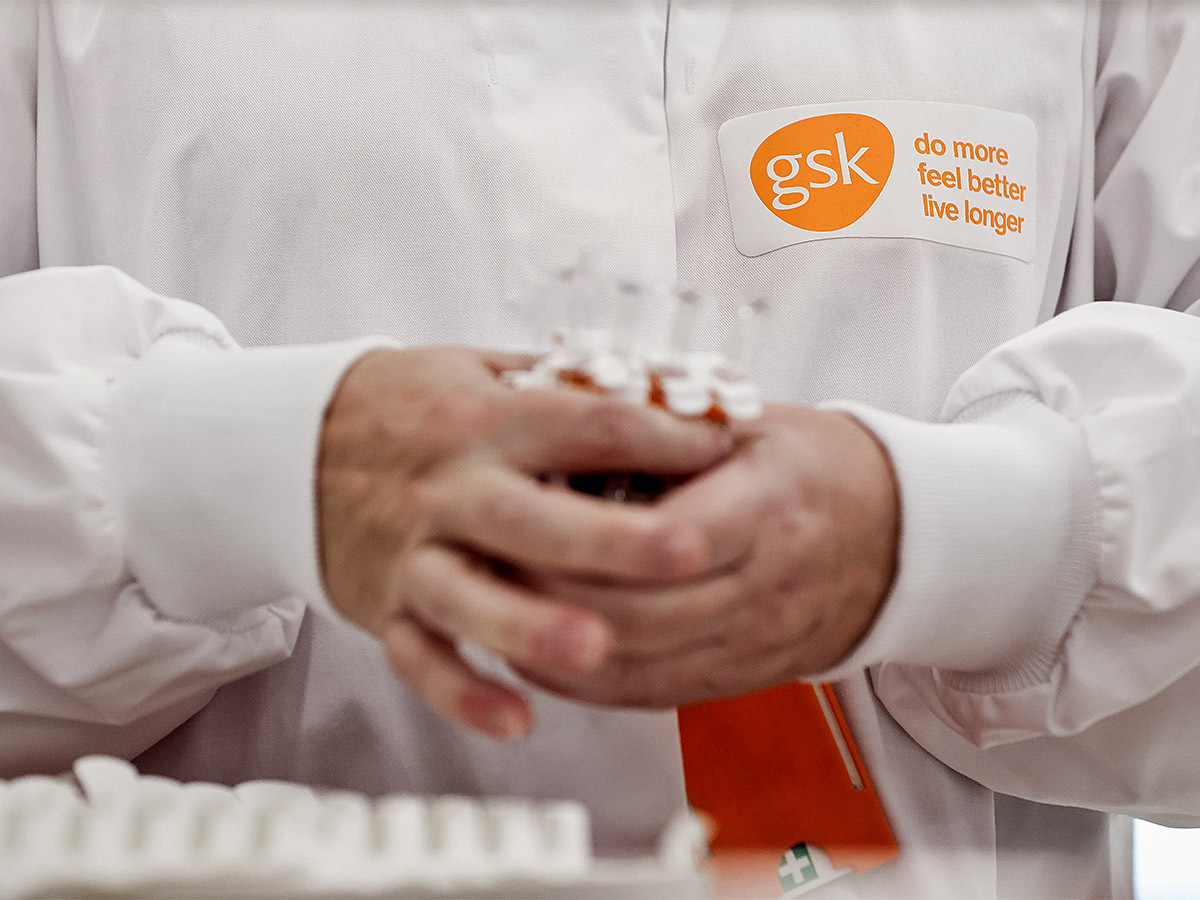GSK shares have plummeted this year as litigation challenges compound the impact of inflation and the continuing Russia-Ukraine conflict on investor sentiment – but analysts remain hopeful for the pharma giant’s future.
With inflation sitting at nearly 10% in both the US and the UK, this year has seen trillions wiped off global markets and GSK [GSK.L] has been no exception.
The multinational pharmaceutical and biotech company’s stock price has plummeted 12.7% in the year-to-date as of 12 October, a loss heftier than the FTSE 100’s decline of 6.8%.
With the economic climate seemingly set to worsen as we head towards 2023, GSK has its work set out for itself, as the company is also facing legal challenges in an international patent case. The pharmaceutical giant also has a potential liability suit that its consumer healthcare spin-off company Haleon could be facing.
Despite these headwinds, GSK is in a good financial position. The company posted a strong set of half-year results in July, including Q2 sales growth of 13% year-over-year to £6.9bn, as well as raised full-year revenue and profit guidance.
Supreme Court dispute with Teva
The pharmaceutical business has attracted attention with its legal battle against Israeli multinational pharmaceutical company Teva Pharmaceuticals [TEVA.TA]. The dispute stems back to 2014, when GSK sued regarding Teva’s generic version of GSK’s drug Coreg. In an alleged breach of the concept known as ‘skinny labels’, the Israeli pharmaceutical company neglected to exclude indications for its version of the drug that were under patent by GSK.
After the case was initially ruled in favour of GSK, an appeal by Teva saw the original decision overturned. However, the US Federal Circuit reinstated the initial decision back in 2020.
Recently, the case has been placed back in the spotlight as the US Supreme Court has asked President Joe Biden’s administration for an opinion on the dispute. Should the final decision be ruled in favour of GSK, Teva will be liable to a $235m fine. More broadly, a win for GSK could set a future precedent surrounding ‘skinny label’ laws and place the UK firm in a stronger position going forward.
Haleon demerger marks a ‘new chapter’ for GSK
GSK shares have also summoned attention due to the demerger of its consumer healthcare arm earlier this year. Originally a franchise formed with Pfizer [PFE], Haleon [HLN.L], the spin-off responsible for Sensodyne toothpaste and Advil painkillers, is the largest of its kind in the world.
The freshly demerged business attracted multiple bids from consumer goods powerhouse Unilever [ULVR.L], with the highest totalling £50bn. These were rejected, and instead GSK chose to list it as a separate entity on the stock market.
For GSK, the demerger provides an opportunity for the business to streamline its operations, with CEO Emma Walmsley describing “the separation as a great catalyst for setting up a new chapter for GSK.”
Haleon shares have got off to a disappointing start, however, falling 10.6% since their debut on the London Stock Exchange on 18 July this year.
Supply and operating costs set to rise
Despite the £7bn dividend GSK received from the Haleon spin-off, its share price plummeted 15% within one week in August upon news of its litigation battle with Teva.
Last summer, GSK also agreed to buy Affinivax in a deal worth $3.3bn, providing the possibility of the production of new vaccines in the future. The business followed this with the takeover of Sierra Oncology in July of this year. With these acquisitions and the offloading of some debt in the Haleon spin-off, the group appears to be a solid foundation.
Despite its strong capital standing, however, the months ahead are likely to be a volatile period for GSK with the cost of supplies and operating costs set to rise in the wake of continuing inflation.
Even so, some analysts remain bullish on the long-term outlook for the stock. Of the 28 analysts providing ratings for the stock to Financial Times, one called it a ‘buy’, eight an ‘outperform’ while the overwhelming majority of 18 called it a ‘hold’, and only one gave it an ‘underperform’ rating. 23 analysts offering 12-month price targets for GSK have a median target price of 1,800p, representing a 32.6% upside from its 11 October closing price.
Disclaimer Past performance is not a reliable indicator of future results.
CMC Markets is an execution-only service provider. The material (whether or not it states any opinions) is for general information purposes only, and does not take into account your personal circumstances or objectives. Nothing in this material is (or should be considered to be) financial, investment or other advice on which reliance should be placed. No opinion given in the material constitutes a recommendation by CMC Markets or the author that any particular investment, security, transaction or investment strategy is suitable for any specific person.
The material has not been prepared in accordance with legal requirements designed to promote the independence of investment research. Although we are not specifically prevented from dealing before providing this material, we do not seek to take advantage of the material prior to its dissemination.
CMC Markets does not endorse or offer opinion on the trading strategies used by the author. Their trading strategies do not guarantee any return and CMC Markets shall not be held responsible for any loss that you may incur, either directly or indirectly, arising from any investment based on any information contained herein.
*Tax treatment depends on individual circumstances and can change or may differ in a jurisdiction other than the UK.
Continue reading for FREE
- Includes free newsletter updates, unsubscribe anytime. Privacy policy





